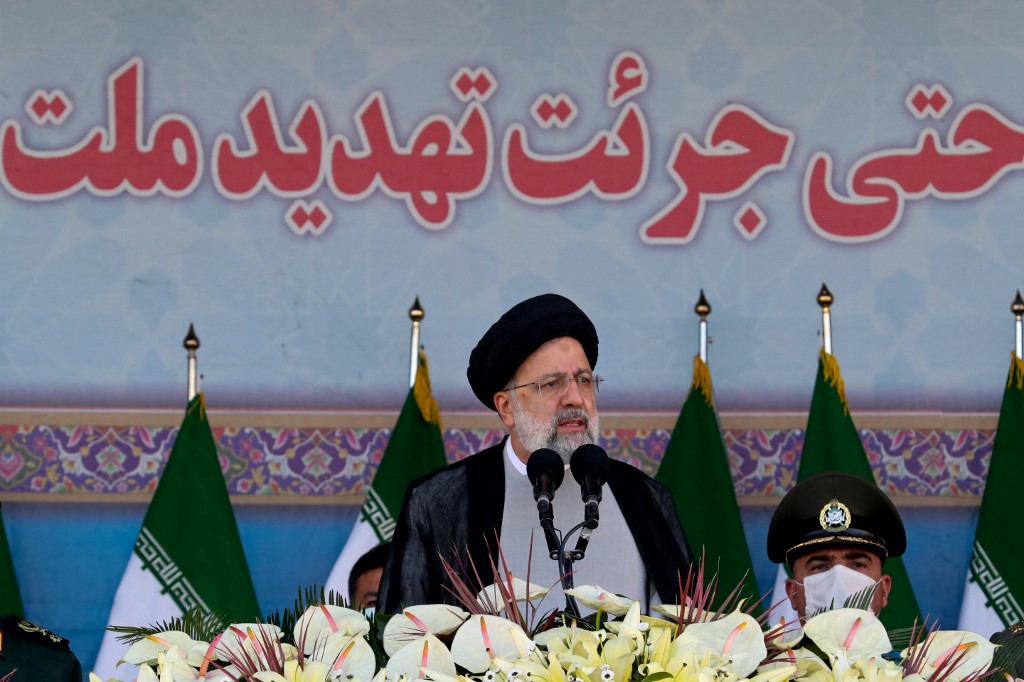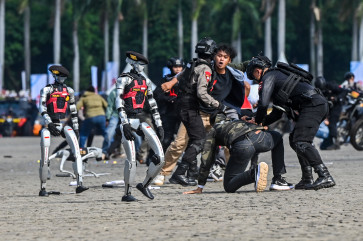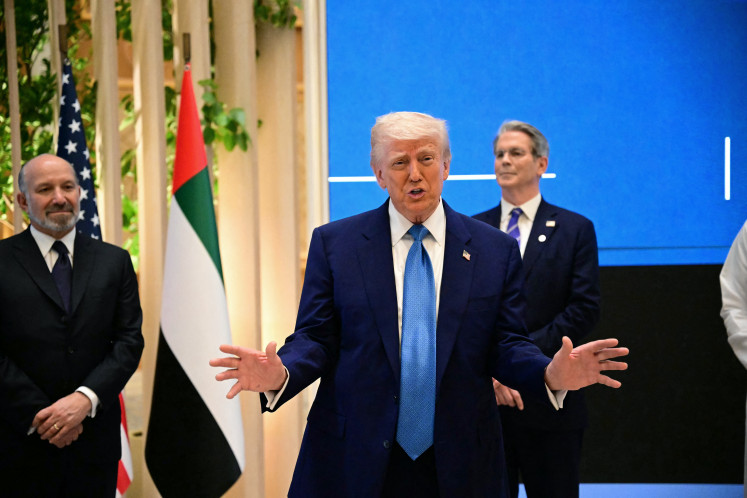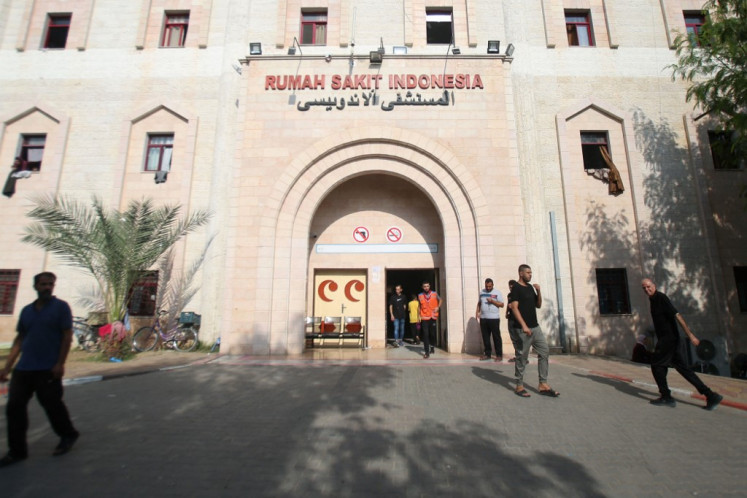Popular Reads
Top Results
Can't find what you're looking for?
View all search resultsPopular Reads
Top Results
Can't find what you're looking for?
View all search resultsRI strengthens ties with Iran amid Western sanctions
No sanctions or unilateral acts would stop Tehran, Raisi asserted.
Change text size
Gift Premium Articles
to Anyone
I
ranian President Ebrahim Raisi’s visit to Bogor Palace in West Java on Tuesday saw Jakarta and Tehran strengthen bilateral cooperation in trade and other sectors resulting in 10 agreements, underscoring the pragmatism of the two sides in the midst of a shift in the geopolitical landscape.
Iran is aiming to boost its international trade ties to try and offset the economic impact of heavy Western and international sanctions, while Indonesia is intent on branching out its cooperation focus to nontraditional partners that aim for mutually beneficial outcomes.
Other agreements secured during the state visit included collaboration in the fields of information and technology, halal products, biology, medicine, processed food and the development of the energy sector, all of which were noted by Jokowi as efforts to increase the two countries’ trade, currently valued at US$250 million.
The deal with Tehran has been a few years in the making but seizes upon the increasing trend of de-dollarization, whereby countries elect to transact using currencies besides the US greenback. Jakarta previously expressed its desire to make Tehran the gateway for Indonesian products to enter the Middle Eastern market, setting its sights on Armenia, Azerbaijan, Afghanistan “and possibly Turkey”, according to trade officials.
Under the PTA agreement, Jakarta would experience a much easier flow for its Tehran-bound exports for products including cocoa, tobacco, coffee and vegetable oil. On the other hand, Iran’s oil, minerals, chemicals and iron would also see lowered tariffs entering Indonesia.
The strengthening of the Iran-Indonesia relationship comes in the shadow of fresh sanctions on Iran’s Revolutionary Guard, as a penalty for the crackdown on the protests ignited by the death of 22-year-old woman Mahsa Amini while in police custody for allegedly not wearing a hijab properly.
The United States, which has imposed multiple sanctions on Iran since 1979 as a response to the seizure of its embassy in Tehran, issued more sanctions in March targeting its oil and petrochemical sales.
But speaking to reporters after his audience with Raisi, Jokowi did not make any mention of the sanctions, only going as far as acknowledging that the two leaders engaged in a discussion on “the global geopolitical situation”.
“We agreed to continue to support the Palestinian people’s struggles and resolve the humanitarian crisis in Afghanistan. We continue to speak out for the Afghan women’s right to education as well as the continuation of humanitarian relief,” said Jokowi.
It was Raisi who addressed the elephant in the room, saying that “sanctions and threats have not been able to stop Iran in any way”, including its plans to develop its relationship with Jakarta. He also noted that “two decades of America’s presence in Afghanistan brought nothing but destruction and killing, including 35,000 disabled children.”
“Iran and Indonesia are serious about fighting unilateralism in regional and international issues,” he asserted.
Raisi’s two-day visit to Indonesia comes against the backdrop of a rapprochement between regional rivals Iran and Saudi Arabia, and increased Arab engagement with Syria.
Before the March deal to restore ties, Shiite Muslim-majority Iran and Sunni Muslim-ruled Saudi Arabia had backed rival sides in conflict zones across the region for years, including in Yemen.
China's involvement in brokering the deal has raised eyebrows given Saudi Arabia's historically close partnership with the US, though that relationship has become strained and experts suggest Washington is no longer viewed as a dominant power in the Middle East.
On the Indonesian side, which has faced US pressure in cooperating with nations subjected to Western sanctions, like Russia, officials have suggested “there is no problem” in cooperating with Iran, especially in the economic sector.
The US embassy in Jakarta declined to comment when asked whether Indonesia’s cooperation initiatives with Iran would prompt the imposing of sanctions.










